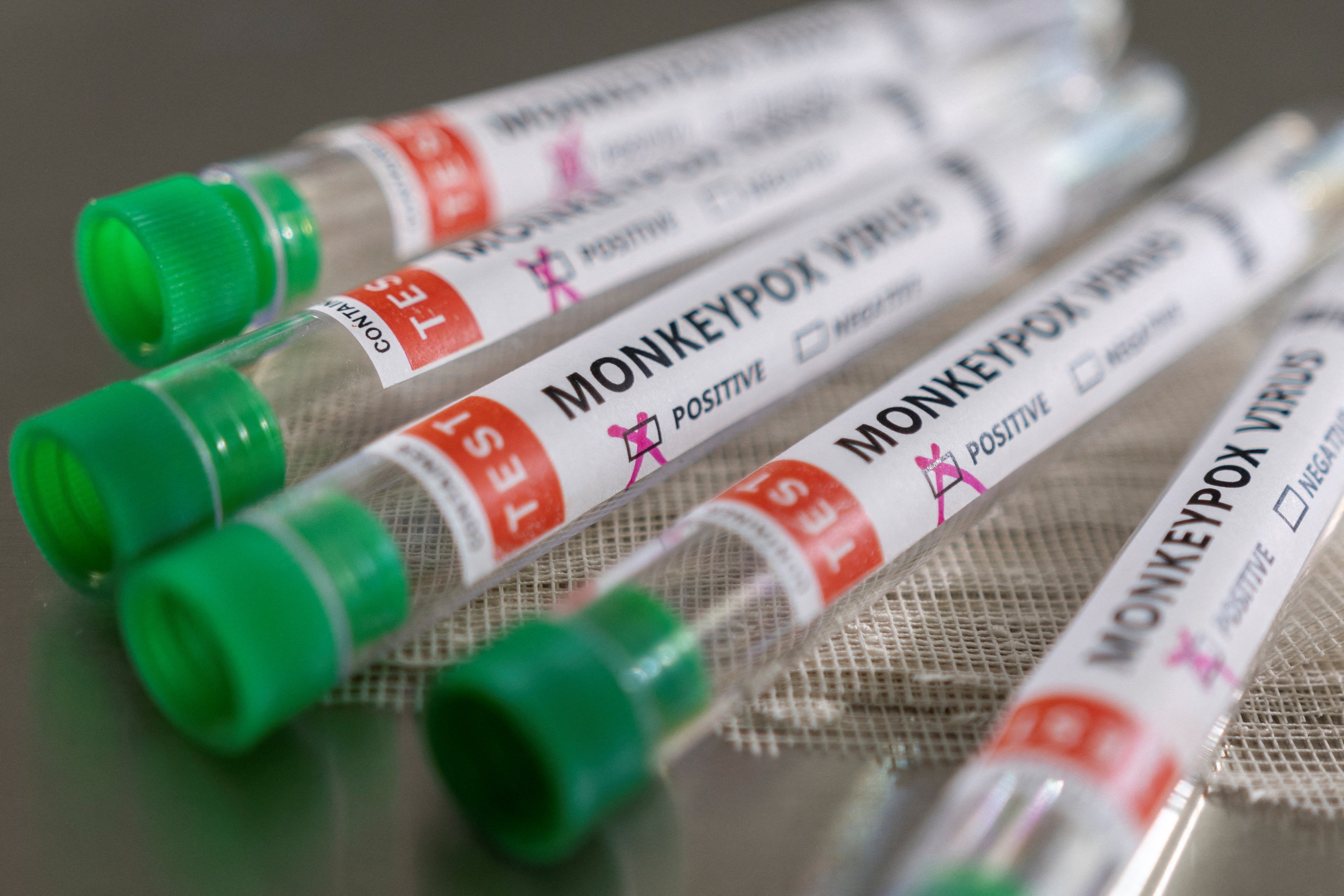First case of monkeypox detected in Scotland
Denmark also sees first case as outbreak continues to spread around globe

Your support helps us to tell the story
From reproductive rights to climate change to Big Tech, The Independent is on the ground when the story is developing. Whether it's investigating the financials of Elon Musk's pro-Trump PAC or producing our latest documentary, 'The A Word', which shines a light on the American women fighting for reproductive rights, we know how important it is to parse out the facts from the messaging.
At such a critical moment in US history, we need reporters on the ground. Your donation allows us to keep sending journalists to speak to both sides of the story.
The Independent is trusted by Americans across the entire political spectrum. And unlike many other quality news outlets, we choose not to lock Americans out of our reporting and analysis with paywalls. We believe quality journalism should be available to everyone, paid for by those who can afford it.
Your support makes all the difference.Scotland has recorded its first case of monkeypox, as more UK cases are set to be announced.
The person infected in Scotland is “being managed and treated in line with nationally agreed protocols and guidance”, according to Dr Nick Phin, a director of Public Health Scotland.
Officials did not confirm details of the infected person, nor where they were located, but said close contacts were being traced and would be given support and possibly vaccination against the virus.
Cases of monkeypox have surged around the world in recent weeks after Britain reported a case to the World Health Organisation (WHO) on 6 May.
Since then, the WHO has recorded more than 90 confirmed cases of the disease in a dozen countries including the UK, Spain, Portugal, Israel, France, the US and Australia – and cases have been linked to travel between some of these countries.
Denmark reported its first case on Monday in a man who returned from Spain.
On Friday, the UK Health Security Agency (UKHSA) announced 20 people in England had been confirmed to have the virus, with more expected to be announced on Monday.
Monkeypox is a disease usually linked to west Africa. The first case of the recent outbreak was in a person who had recently returned from Nigeria but, since subsequent cases were found without travel links, health officials think the virus is likely spreading within Britain.
Downing Street said the UKHSA was monitoring the outbreak “extremely carefully”. The UKHSA has warned the public to be alert but said as monkeypox is a typically mild, self-limiting disease which is spread by physical contact, the risk posed to the general population is low.
A government minister on Monday said the outbreak was not a repeat of the Covid-19 pandemic and noted there was a working vaccine available. The government advises anyone with symptoms or who has been in close contact with an infected person to isolate for 21 days.

Typical symptoms of monkeypox include fever, headache, muscle aches, backache, swollen lymph nodes, chills and exhaustion. A blister-like rash or sores can also develop, starting on the face but spreading across the body.
The rash changes throughout the infection, finally forming a scab which falls off within weeks.
Many of the early cases were in gay or bisexual men, leading the UKHSA to warn such people in particular to to be alert to any symptoms.
An infectious diseases expert said superspreader events were likely behind the global surge in monkeypox cases. Sir Jeremy Farrar, the director of Wellcome, said the latest outbreak differs to earlier ones as the virus has “spread across borders so quickly”.
Spain and Portugal have reported the highest case totals so far, with 34 and 37 respectively. Madrid’s senior health official said on Monday that authorities were investigating possible links between a recent Gay Pride event in the Canary Islands, which drew some 80,000 people, and cases at a Madrid sauna.
Join our commenting forum
Join thought-provoking conversations, follow other Independent readers and see their replies
0Comments